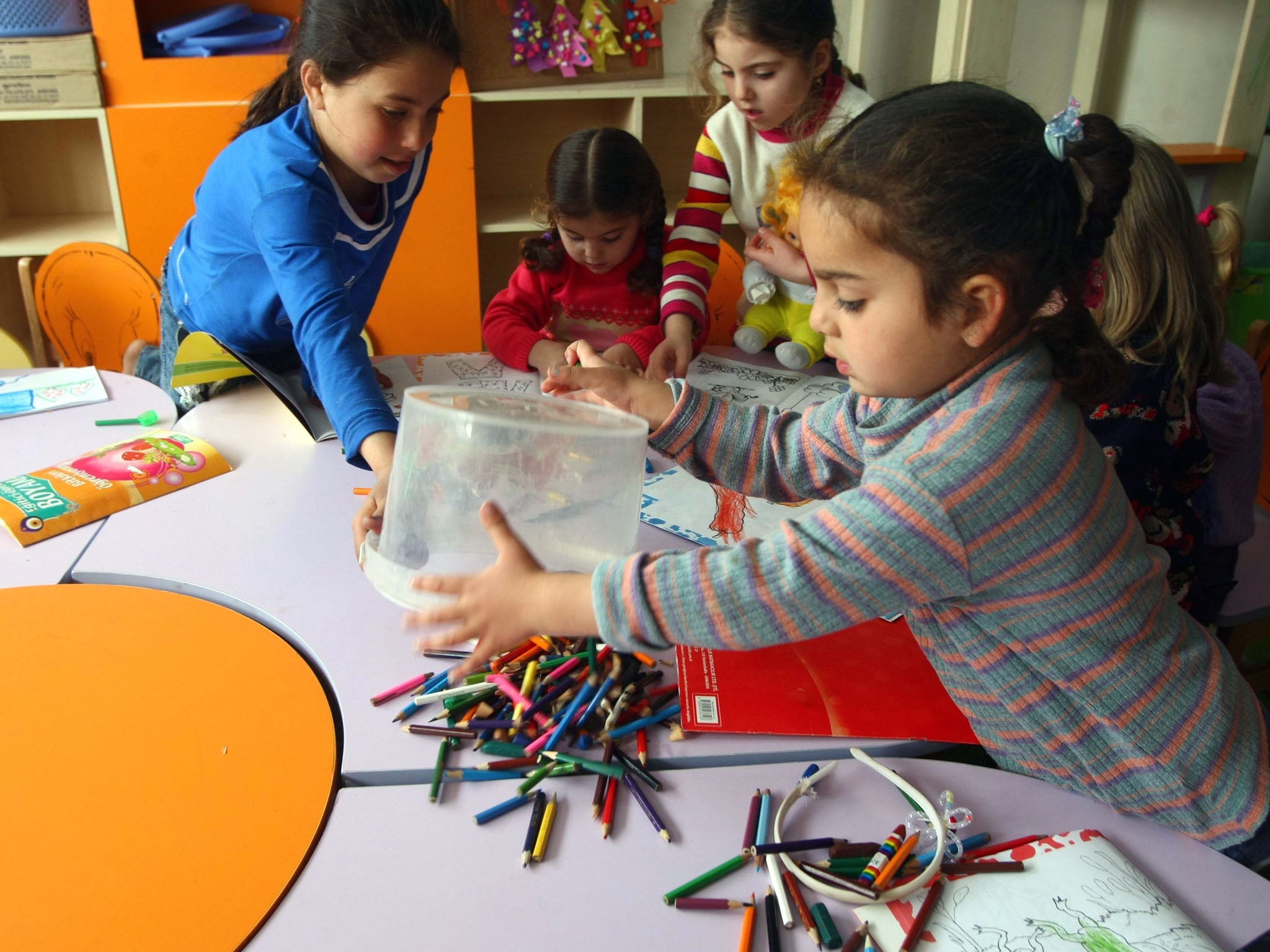For Syrian refugees, winter makes a harsh life rougher

Um Khalid is contemplating selling some of the bare-bones food ration given to Syrian refugees to buy winter clothes for her eight children.
"I was thinking I could buy something every month for one child that way," she said, explaining her pained calculation as she served instant coffee heated on a hot plate in the tent that has sheltered the family since they fled Syria 18 months ago.
Outside the tent flaps, a heavy rain formed large puddles and transformed dirt into slippery mud. In the cold and dank, children ran around in sweatshirts and open-toed sandals.
"I don't care about myself, I only care about what my children need," said the 32-year-old mother, who was wearing the thin, floor-length dress she had on when she arrived in Turkey this past summer.
The approach of winter is making a harsh life even bleaker for the 500,000 Syrians living in refugee camps in neighboring countries, a number the United Nations said could double by the middle of next year. Conditions are even worse at some camps within Syria, where food is in short supply and the major source of light is candles stuck in tin bowls.
The gloom of winter is palpable even in nicer camps, such as the one in Yayladagi, where the Turkish government has outfitted the grounds surrounding a former tobacco warehouse with amenities designed to make existence bearable for the nearly 2,800 Syrian refugees there.
The 239 tents that house half the refugees are wired with electricity to power the compact florescent bulb and radiator-style portable heater in each tent. Many have satellite TV on cheap sets bought by residents, often with wages from painting houses or picking olives in Yayladagi. There are a few washing machines.
At the gate, a metal detector, though largely ignored, helps keep out guns. Half the camp's residents are children.
The more fortunate refugees are housed in an empty building of 276 rooms, some of them as small as a walk-in closet and serving as home to a single family. A food allowance of $45 a month is distributed via electronic cards accepted in local stores, with the admonition that it cannot be used on cigarettes, alcohol or chocolate.
For many here, although their most basic needs are met, the prospect of a second winter in a refugee camp is grim. Cold temperatures and two solid weeks of rain have made things worse.
"I stay inside all the time," said Hawia Samua, 55, who shares two rooms in the warehouse with her husband, three sons and new daughter-in-law. "I only go out if I have to go to the doctor."
Two men's jackets, borrowed from refugees with coats to spare, hung on a coat rack. There was none for Samua, who wore no sweater beneath her abaya.
"At least in here it's warm," she said, gesturing toward the heater draped with drying laundry. The room, about 8 feet by 15 feet, was furnished with a stack of thin mattresses, a plastic chair and a table with a hot plate.
Temperatures in Yayladagi typically drop below freezing on winter nights, and mountains not far away are capped with snow.
Two women washing dishes at a cold-water spigot, by a metal fence with razor wire, said many adults are catching flu and colds from the children.
"We're always sick, all of us," said Raida, who is six months pregnant, as she perched on a large plastic yogurt barrel.
Suleiman Qubbai, 18, a construction worker wearing a thin leather jacket, said he dreaded a repeat of last winter, when a heavy snowfall caused several tents to collapse. The power was out for three days, and many refugees huddled in tents under blankets until it was restored and the heaters worked again.
The Turkish government is working to improve conditions at Yayladagi, said camp manager Mehmet Gunes. It is renovating another warehouse so those in tents can move indoors, he said, and will dig trenches to channel the standing pools of water. It has distributed extra blankets, enough for each resident to have two. A shipment of winter clothes purchased by the government is expected soon.
But that will do little to alleviate the heavy sense of loss here, with no end to the war in sight.
"My children have lost almost two years of their lives in this camp," said Marwan Salim, 39, a lawyer, lamenting that they are being taught in Turkish, not Arabic.
Um Khalid buries her face in her hands and weeps when she recalls the old stone house she left in the town of Jabal al-Zawiya. It was covered in vines and had a water well out back. She returned to Syria this month for the first time and found it burned to the ground. She saw Syrian warplanes dropping bombs on a neighboring village, she said, and realized she will not be returning home for good anytime soon.
"I'd rather live in a tent in Syria," she said. "At least it's my own country. The Turks have done many things for us. But I feel like a stranger here."
At the camp's edge, Samira Zahluk, 48, pointed to brown stains on her white canvas tent from all the rain. Outside the zippered flaps, a muddy pond grew larger by the hour, and the brown wool blanket covering her tent floor was damp.
"All I want is just to go back," she said. "This is not a life here."
Join our commenting forum
Join thought-provoking conversations, follow other Independent readers and see their replies
Comments
Bookmark popover
Removed from bookmarks